#wife of ludwig iii of bavaria
Explore tagged Tumblr posts
Text








Royal Birthdays for today, January 7th:
Thomas of Woodstock, 1st Duke of Gloucester, 1355
Helena, Archduchess of Austria, 1543
William Louis, Duke of Württemberg, 1647
Joseph Bonaparte, King of Spain, 1768
Charlotte Augusta of Wales, British Royal, 1796
Ludwig III, King of Bavaria, 1845
Michael, Prince of Greece and Denmark, 1939
Sindiswa Dlamini, Wife of Mswati III, 1995
#thomas of woodstock#princess charlotte#princess charlotte augusta#duke william louis#joseph bonaparte#ludwig iii#prince michael#Helena of Austria#Sindiswa Dlamini#royal birthdays#long live the queue
11 notes
·
View notes
Text
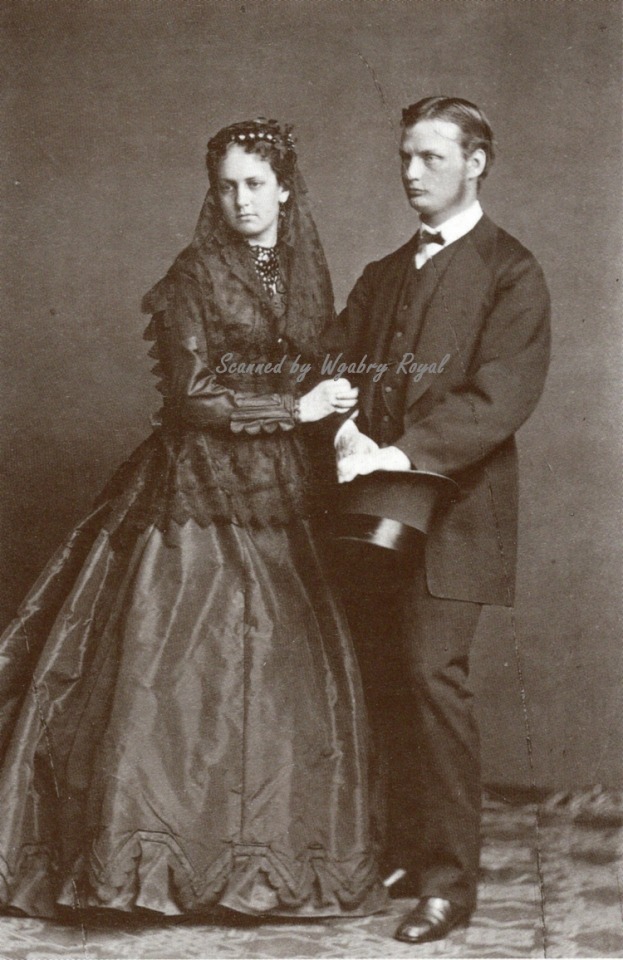
Ludwig III the last King of Bavaria and his future wife Maria Theresia, Archduchess of Austria-Este.
Source "Das Familienalbum von Kaiser Franz Joseph und Elisabeth"
17 notes
·
View notes
Text
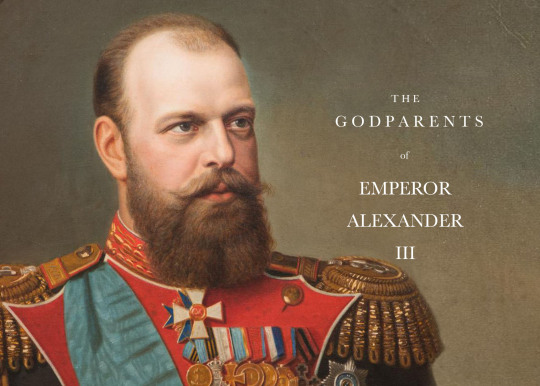

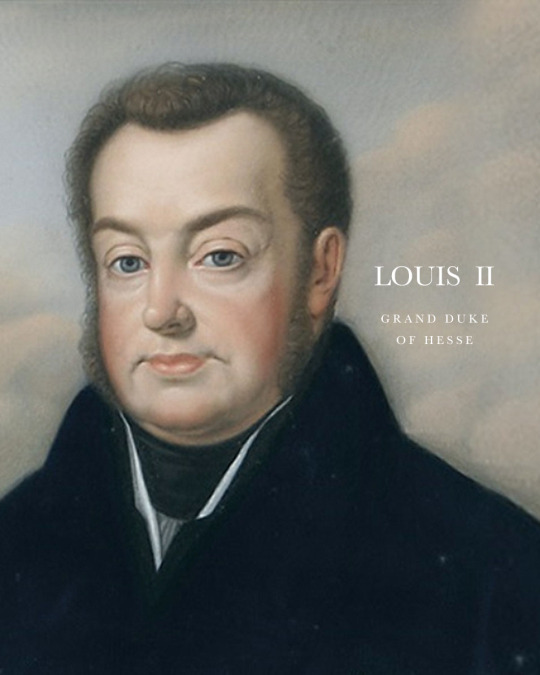

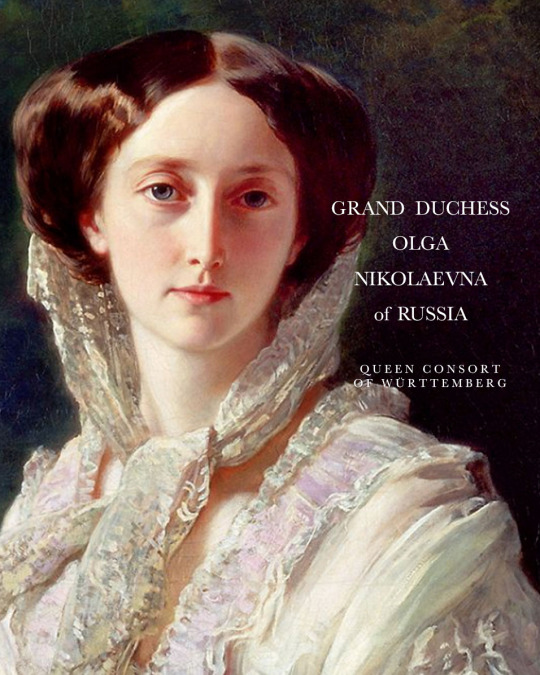
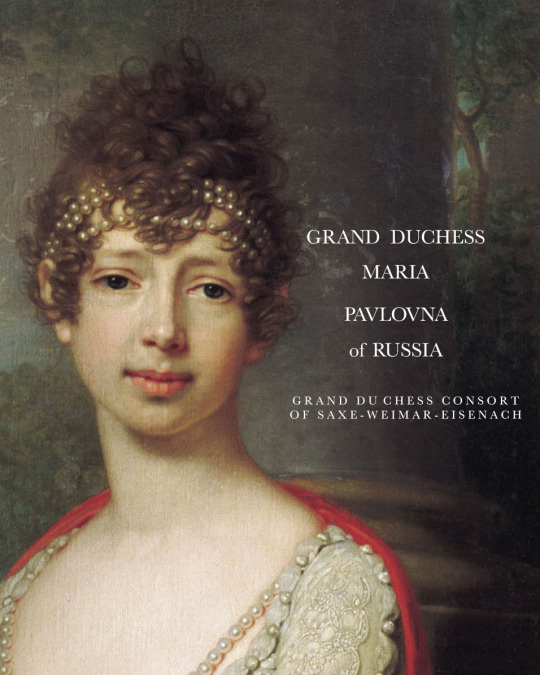

GODPARENTS OF EMPEROR ALEXANDER III
Emperor Alexander III (then Grand Duke) was born as the second son of Emperor Alexander II (then Tsesarevich) on 10 March 1845, during the reign of his grandfather Emperor Nicholas I. He was christened a week later at 10 am in the Winter Palace Church, St. Petersburg, by the Confessor of Their Imperial Highnesses. He had six listed godparents:
NICHOLAS I, EMPEROR OF RUSSIA - his paternal grandfather was one of his godparents present at his christening. Mainly remembered in history as a reactionary whose controversial reign was marked by geographical expansion, centralisation of administrative policies and repression of dissent. He died in 1855, when the Alexander was only 9 years-old, just a week shy from his 10th birthday.
LOUIS II, GRAND DUKE OF HESSE AND BY RHINE - his maternal grandfather was another of his godparents, but was absent at the christening. The hessian grand duke, like his paternal grandfather, was also considered a reactionary leader, he was in conflict with parliament almost his entire reign. The German revolution in 1848-49 proved his inability to govern. On March 5, 1848 he named his son Louis III as co-regent, and a year later he died.
GRAND DUCHESS ELENA PAVLOVNA OF RUSSIA - his great-aunt, the wife of Grand Duke Michael Pavlovich, stood as one of his godparents. Born as Princess Charlotte of Württemberg, she became a close friend of Alexander's mother the Empress Maria Alexandrovna, and was known as an intellectual. She was also considered the most exceptional woman in the imperial family since Catherine the Great.
GRAND DUCHESS OLGA NIKOLAEVNA OF RUSSIA, QUEEN CONSORT OF WÜRTTEMBERG - his aunt was one of his godparents present at the christening. She was the younger sister of his father. Attractive, cultured and intelligent, she was considered to be one of the most eligible princesses in Europe. Just three years after her nephew was born, in 1846, she married Crown Prince Karl of Württemberg. Alexander's older brother the heir apparent Nicholas died just two months before their aunt Queen consort of Württemberg. With his death, he became the next heir apparent, the 'Tsesarevich'.
GRAND DUCHESS MARIA PAVLOVNA OF RUSSIA, GRAND DUCHESS CONSORT OF SAXE-WEIMAR-EISENACH - his great-aunt was another of his godparents. One of the daughters of Emperor Paul I, the grand duchess married a German prince Karl Friedrich, Grand Duke of Saxe-Weimar-Eisenach in 1804. She was an intellect, interested in both arts and sciences. German poet and novelist Johann Wolfgang von Goethe hailed her as one of the worthiest women of his time. She was the great-grandmother of Wilhelm II, German Emperor and Queen Victoria of Sweden.
PRINCESS MATHILDE CAROLINE OF BAVARIA, GRAND DUCHESS OF HESSE AND BY RHINE - his aunt, the wife of his uncle Louis III, Grand Duke of Hesse and by Rhine, was listed as one of the future emperor's godparents. She was the eldest daughter of King Ludwig I of Bavaria. Her marriage to Louis III was childless. She died of cancer in 1862 at the age of 48.
Source
35 notes
·
View notes
Text

#OnThisDay in 1958 Princess Adelgunde of Bavaria died. She was born in 1870 as the daughter of the future King Ludwig III of Bavaria and his wife Maria Theresia of Austria-Este. On 20 January 1915, she married William, Prince of Hohenzollern but they had no children.
#Princess Adelgunde of Bavaria#royals#royal women#on this day#old photo#Princess of Hohenzollern#1870#Janauary 4#1958
0 notes
Photo

Maria Theresa of Austria-Este, Queen of Bavaria (2 July 1849 - 3 February 1919)
#maria theresa of austria-este#maria theresa henriette dorothea#queen of bavaria#daughter of archduke ferdinand of austria-este#wife of ludwig iii of bavaria#history#women in history#19th century#20th century#vintage#antique
13 notes
·
View notes
Text
Royal Wedding on 26 November 1924.
Wilhelm Karl, Duke of Urach (60) and Princess Wiltrud of Bavaria (40).
The bridegroom was the eldest son of Wilhelm, Duke of Urach and his second wife, Princess Florestine of Monaco. He was previously married to Duchess Amalie of Bavaria who died in 1912.
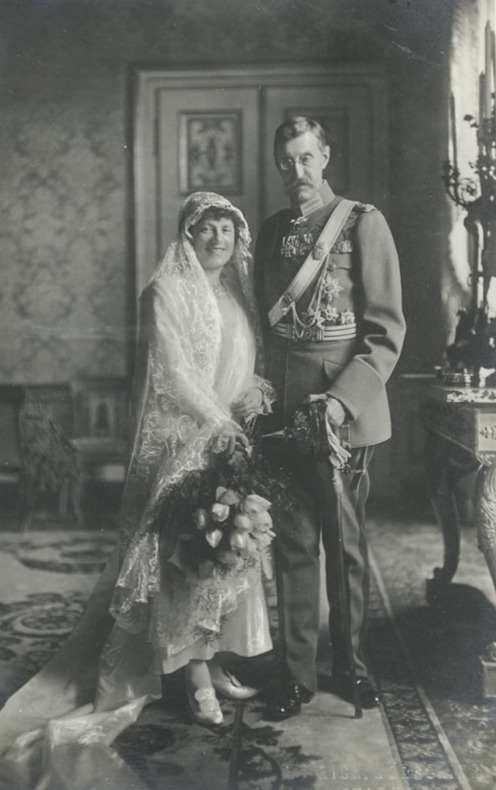
The bride was the sixth daughter of King Ludwig III of Bavaria and his wife, Archduchess Maria Theresa of Austria-Este.
The bridal couple with Princess Wiltrud's niece and nephew, Countess Maria Theresia and Count Johann Kaspar von Preysing-Lichtenegg-Moos.
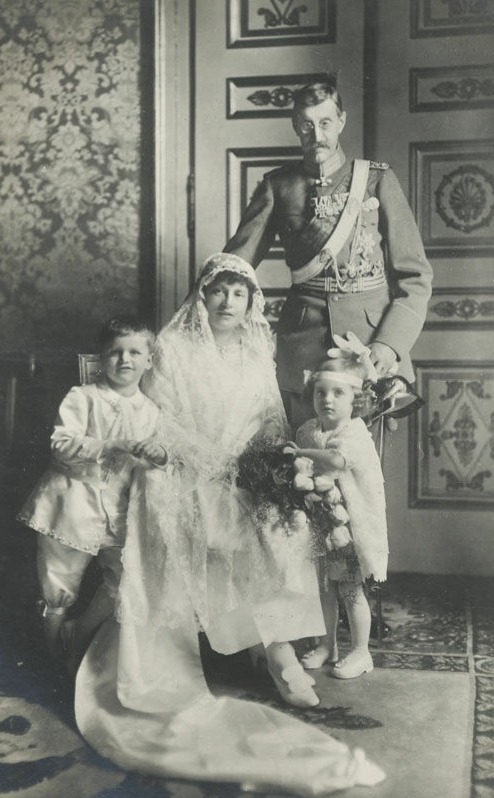
The wedding guests

Back row: Prince Eberhard of Urach, Prince Wilhelm of Urach, Prince Karl Aloys of Liechtenstein, Prince Karl Gero of Urach and Prince Albrecht of Urach.
Front row: Princess Margarete of Urach, Princess Karl Aloys of Liechtenstein, Princess Wiltrud of Bavaria, Wilhelm Karl, Duke of Urach, Princess Karola of Urach and Princess Mechthilde of Urach.
#princess wiltrud of bavaria#wilhelm karl duke of urach#princess margarete of urach#princess elisabeth of urach#princess karl aloys of liechtenstein#prince karl aloys of liechtenstein#prince eberhard of urach#princess karola of urach#princess mechthilde of urach#prince wilhelm of urach#karl gero duke of urach#Count Johann Kaspar von Preysing-Lichtenegg-Moos#countess maria theresia von Preysing-Lichtenegg-Moos#royal weddings#1924#1920s#urach#german royalty#german royal#prince albrecht of urach
12 notes
·
View notes
Photo
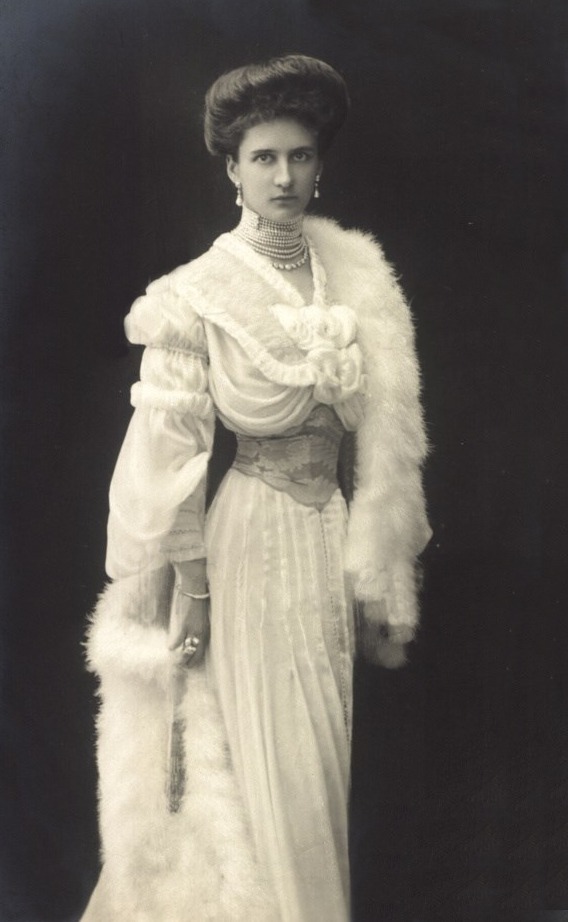
Princess Mathilde of Bavaria (17 August 1877 – 6 August 1906) was the sixth child of Ludwig III of Bavaria and his wife, Maria Theresa of Austria-Este. After her early death, Life-Dreams: The Poems of a Blighted Life, a collection of poems she wrote, was published in 1910.
#Mathilde of Bavaria#House Wittlesbach#XIX century#people#portrait#photo#photography#Black and White
12 notes
·
View notes
Photo
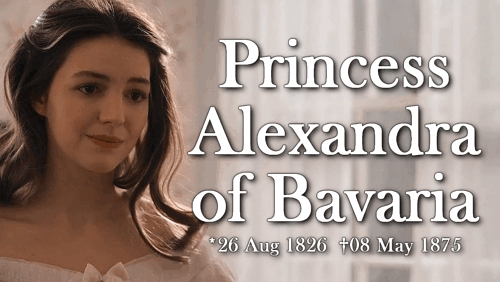
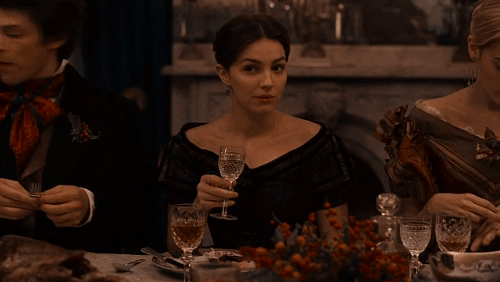
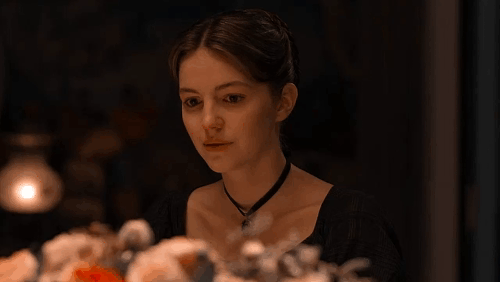


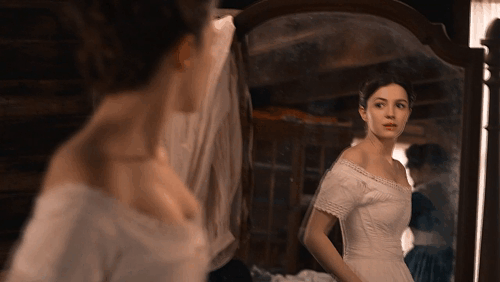
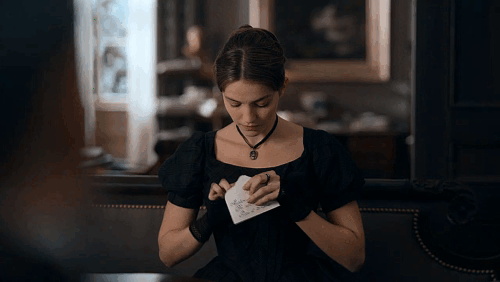


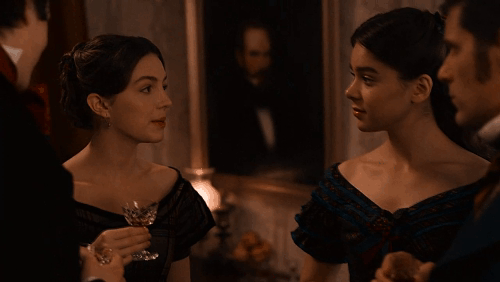
House of Wittelsbach: Princess Alexandra of Bavaria
Alexandra was born as the eight child and fifth daughter of King Ludwig I. of Bavaria and his wife Therese of Saxe-Hildburghausen. Alexandra’s siblings were King Maximilian II. of Bavaria, King Otto I. of Greece, Prince-Regent Luitpold of Bavaria, Grand Duchess Caroline Mathilde of Hesse and by Rhine, Duchess Adelgunde of Modena, Archduchess Hildegard of Austria and Prince Adalbert of Bavaria. But not only her siblings were of high-rank, among her aunts were Empress Caroline Augusta of Austria, Queen Elisabeth Ludovika of Prussia, Queens Amalie Auguste and Maria Anna of Saxony, Archduchess Sophie of Austria and Duchess Ludovika in Bavaria. Through the latter two, she was also a first half-cousin of Emperor Franz Joseph of Austria and his wife Elisabeth “Sisi” in Bavaria.
After his divorce, Louis Lucien Bonaparte, a cousin of Napoleon III., asked for Alexandra’s hand but her father declined. He thought it impossible to marry his daughter to a Napoleon but Alexandra’s fear of touch might have been another reason for him to decline a marriage. Alexandra stayed unmarried for the rest of her life. Instead her father made her abbess of the Royal Chapter for Ladies of Saint Anne in Munich and Würzburg.
In 1852, Alexandra began her literary career as an author and French to German translator. Several of her books were dedicated to charities and their earnings donated towards their cause.
Like other members of the House of Wittelsbach, Alexandra suffered from mental health issues too. She was obsessed with cleanliness and only wore white for a time. In her early twenties, she was haunted by the delusion of having swallowed a whole glass piano as a child. When she had to throw up one day, her servants tried to trick her by throwing a miniature piano into her puke to show her that she finally got rid of it.
Despite all her troubles, Alexandra was very close with her mother and tried to be as useful and kind as possible after her father’s death. Alexandra especially took care of the poor in Aschaffenburg. In 1860, she sponsored a public kitchen for the poor and sick there.
Alexandra died on May 8th, 1877, at the age of only 49 at Nymphenburg Castle. The same day and place, her younger brother Adalbert died too. But while Adalbert is buried at St. Michael, Alexandra rests in the Wittelsbach Crypt of Theatine Church in Munich.
// Ella Hunt in Dickinson
#women in history#historical women#historyedit#1800s#19th century#Alexandra of Bavaria#House of Wittelsbach#Royal Women of Bavaria
160 notes
·
View notes
Text
Fernando II, King of Portugal by jure uxoris (Husband of Queen Maria II of Portugal)

Reign: 16 September 1837 – 15 November 1853
Fernando II (29 October 1816 – 15 December 1885) was a German prince of the House of Saxe-Coburg and Gotha-Koháry, and King of Portugal jure uxoris as the husband of Queen Maria II, from the birth of their first son in 1837 to her death in 1853.
In keeping with Portuguese law, only after the birth of his son in 1837 did he acquire the title of king. Fernando’s reign came to an end with the death of his wife in 1853, but he served as regent for his son and successor, King Pedro V, until 1855.

Born Ferdinand August Franz Anton in Vienna, he was the eldest son of Prince Ferdinand of Saxe-Coburg-Saalfeld

and his wife Princess Maria Antonia Koháry de Csábrág,

heiress to the House of Koháry. The younger Fernando grew up in several places: the family estates in modern-day Slovakia, the imperial court of Austria, and Germany. He was a nephew of King Leopold I of Belgium,

and thus a first cousin to Leopold II of Belgium

and Empress Carlota of Mexico,

as well as Queen Victoria of the United Kingdom

and her husband Prince Albert.

In 1826, his title changed from Prince of Saxe-Coburg-Saalfeld to Prince of Saxe-Coburg and Gotha, following the re-arrangement of the Saxon duchies.
According to Portuguese law, the husband of a queen regnant could only be titled king after the birth of an heir from that marriage; this was the reason Maria II's first husband, Auguste de Beauharnais, Duke of Leuchtenberg, never acquired the title of king. After the birth of their eldest son and heir, the future Pedro V of Portugal, Ferdinand was proclaimed King Dom Fernando II.
Although it was Maria who reigned by right, the royal couple formed an effective team during their joint reign, with Fernando reigning by himself during his wife's pregnancies.

Eventually, Maria II died as a result of the birth of their eleventh child, and Fernando II's reign ended. However, he would assume the regency of Portugal from 1853 to 1855, during the minority of his son King Pedro V.
In 1869 he rejected an offer to assume the throne of Spain.
Fernando was an intelligent and artistically minded man with modern and liberal ideas. He was adept at etching, pottery and painting aquarelles. He was the president of the Royal Academy of Sciences and the Arts, Lord Protector of the University of Coimbra and Grand-Master of the Rosicrucians.

In 1838, he acquired the former Hieronymite monastery of Our Lady of Pena, which had been built by King Manuel I in 1511 on the top of the hill above Sintra and had been left unoccupied since 1834, when the religious orders were suppressed in Portugal. The monastery consisted of the cloister and its outbuildings, the chapel, the sacristy and the bell tower, which today form the northern section of the Pena National Palace (the "Old Palace").

Fernando began by making repairs to the former monastery, which, according to the historical sources of that time, was in poor condition. He refurbished the whole of the upper floor, replacing the fourteen cells used by the monks with larger-sized rooms and covering them with the vaulted ceilings that can still be seen today. In 1843, the king decided to enlarge the palace by building a new wing (the New Palace) with even larger rooms (one of them being the Great Hall), ending in a circular tower next to the new kitchens. The building work was directed by the Baron von Eschwege, a wild architectural fantasy in an eclectic style full of symbolism that could be compared with the castle Neuschwanstein

of King Ludwig II of Bavaria.

The palace was built in such a way as to be visible from any point in the park, which consists of a forest and luxuriant gardens with over five hundred different species of trees originating from the four corners of the earth.

Fernando would spend his last years in this castle with his second wife, receiving the greatest artists of his time.

In 1836 Fernando married Queen Maria II of Portugal. Eleven children were born to the royal couple before Maria died of complications due to childbirth in 1853. Fernando was destined to outlive eight of his eleven children. In late 1861, an attack of cholera or typhoid fever struck the royal family and Fernando suffered the tragedy of witnessing the death of three of his five surviving sons.
Later in his life, Fernando married again in Lisbon on 10 June 1869 to actress Elisa Hensler

(Neuchâtel, 22 May 1836 – Lisbon, Coração de Jesus, 21 May 1929). Just before the marriage, she was created Gräfin (Countess) von Edla by Fernando's cousin Ernest II, Duke of Saxe-Coburg and Gotha.

The couple had no children.
By Maria II of Portugal (4 April 1819 – 15 November 1853; married on 9 April 1836):
Pedro (16 Setember 1837 - 11 November 1861) Succeeded his mother as Pedro V, King of Portugal.
Luís (31 October 183819 October 1889) Succeeded his brother, Pedro, as King of Portugal.
Infanta Maria (4 October 1840) Stillborn daughter.
Infante João (16 March 1842 - 27 December 1861) Duke of Beja
Infanta Maria Ana (21 August 1843 - 5 February 1884) Married King George of Saxony and was the mother of King Frederick August III of Saxony.
Infanta Antónia (17 February 1845 - 27 December 1913) Married Leopold, Prince of Hohenzollern, and was the mother of King Ferdinand I of Romania.
Infante Fernando of Portugal (23 July 1846 - 6 November 1861) Died of cholera at age 15.
Infante Augusto (4 November 1847 - 26 September 1889) Duke of Coimbra
Infante Leopoldo (7 May 1849) Stillborn son.
Infanta Maria da Glória (3 February 1851) Stillborn daughter
Infante Eugénio (15 November 1853) Died some hours after the death of his mother.
9 notes
·
View notes
Text
LXXII.
April 2019
On April 23, 2019, Jean, Grand Duke of Luxembourg passed away surrounded by his family at Berg castle. There was not a dry eye in the room, even Harry who had barely known Jean two years could not hold anything back. The older man was always kind to Harry and welcomed him with open arms from the start.
Jean was holding the hand of his 8-year-old great-grandson Count Leopold de Limburg-Stirum and the little hand of his day's old great-grandson Archduke Baudouin of Austria, Prince of Habsbourg-Lorraine. Just hours later the Belgian royal family and some Belgian nobility who were related to Jean poured into Berg castle to pay their respects.
In an act of grief, Isabella clung to Harry like never before as the nieces and nephews and their families of Jean came into the room to pay their respects. Isabella was broken and Harry could not help but worry for her, especially so close to giving birth in less than a month. To a surprise, 95-year-old Archduchess Yolande of Austria, Isabella’s grandmother, had come from Belgium to pay her respects to a man she had so many connections to.
Isabella had grasped at the aging woman for dear life and cried, even more, leaving Harry to stand awkwardly with almost everyone else embracing each other. Several seconds later Maria-Stella with her sad eyes opened her arms to him so Harry picked her up and heard the little 5-year-old sniffling.
All of a sudden Isabella was struggling to stand up and Alexander had quickly grabbed her before she fell.
“Belle are you okay?” asked Alexander.
“I think I need to sit down,” answered Isabella.
Rodolphe let his youngest son on the ground and grabbed Maria-Stella from Harry. Gabriel just walked to his grandmother, Marie Astrid, while Harry helped Isabella stand upright.
“You should go lay down.”
“I think I do,” whispered Isabella.
Just minutes later the family had been informed about the death of Princess Gabrielle of Bavaria, Duchess of Croy who was a first cousin of Jean. Gabrielle’s mother was Princess Antonia of Luxembourg and like many in her family, she married into the Belgian nobility proving the strong connections between Belgium and Luxembourg.
When Isabella was aware of her the death of the Bavarian princess she looked directly at Harry with a haunting look, “Charlotte was right. We have faced so much death and it’s only April.”
------
Isabella and Harry were supposed to stay in Luxembourg until the funeral but Harry’s prior engagements back in London had caused him to leave Isabella alone with their twin sons. While she was in the care of her family, the constant worrying over her and their children plagued his mind. Isabella’s siblings had families of their own so Harry felt guilty to ask them to take on more.
Guillaume and Stephanie were more than happy to help Isabella out while Harry was away. Stephanie was much more than a cousin’s wife, she had Ligne blood, thus making her family by blood. Bertie and Charlie had made things more difficult when they would not leave their mother’s side.
Harry had come back to Luxembourg to find most of Isabella’s family crowded around and were whispering. Eager to join the conversation, Harry had put himself by the large computer screen.
“Harry is it true?” asked Isabella.
All the attention was now on him, “What are you talking about?”
The area was cleared so Harry could look at the American news article. These rumors have been going around since Will and Kate started dating so Harry had no reason to think they were true.
“Are they right?” asked Isabella.
“Of course they aren’t,” replied Harry.
“The Americans are reporting on this,” said Kathleen.
“They’ll report on anything even if they have to make it up.”
“If the British press is silent about this and the American media to reporting-” stated Alexander.
“Like Wallis Simpson and the Abdication crisis,” interrupted Isabella.
“Those things are not the same,” fought Harry.
“But to a certain extent it is, right?” asked Isabella.
“You’ve seen the things they write about us Isabella. You’ve seen the crazy rumors and how far they are willing to go to get some clicks on a webpage,” answered Harry.
“We should just let this go,” suggested Maria Annunciata.
“Our grandfather died and we’re sitting here like school children gossiping about two little nobodies. Move on from this,” argued Josef-Emanuel. The young man was visibly upset and his eyes red ready to let his tears out.
Marie-Astrid, Isabella’s cousin, comforted her younger brother and everyone now looked around the room in agreement, “We should move on.”
Just like before Harry, the dozens of cousins returned to their own conversations. Despite 2 years of being married to Isabella, he still felt like an outsider in her family sometimes.
Time went by and monarchies all over the world started to announce who they were going to send to the funeral of Grand Duke Jean of Luxembourg. Everyone sent out condolences and Queen Elizabeth’s was the most personal.
“Your Royal Highness,
I was tremendously saddened to learn of the death of your father Grand Duke Jean who served your country so well and for so many years. I have very fond memories of your father, including the time he spent in the United Kingdom during the Second World War. As you know, wishing to contribute to the liberation of his country, he volunteered for the British army, serving with distinction in the Irish Guards of which he was later to become Colonel of the Regiment. In recent years, our family have joined together through the act of marriage. The ties between our two countries will be remembered just as your father has.
Your father will be greatly missed, both inside and outside Luxembourg. Prince Philip and I offer Your Royal Highness and the people of the Grand Duchy of Luxembourg our most profound condolences. Elizabeth R.”
“Are you okay?” asked Harry.
“Sorry. I just can’t stop reading it.”
“I remember your grandfather when I was younger. If you would have told me I would marry and start a family with his Habsburg granddaughter, I would have never believed it. Yet here we are.”
“Here we are,” repeated Isabella.
“He loved you so much. I know because I love you and you were his granddaughter so that should mean more,” smiled Harry.
Isabella stayed silent going over his words, “Did you say you loved me?”
“I... did.”
“Do you really mean it?”
“I do. I just never wanted to say it before because well... we are not like other people.”
“We are not,” agreed Isabella.
“We are out of order.”
-----
May 2019
The funeral of Princess Gabrielle of Bavaria, Dowager Duchess of Croy was a unique event. The princess brought together an uncommon group of royals. Princess Gabrielle belonged to a generation of dynastic royals and brought forth another kind of generation that had one noble parent and the other a royal. The dozens of Bavarian royals came to pay their respects to a granddaughter of the last Bavarian King, Ludwig III & his Habsburg wife.
While some were in mourning, a select few were thinking of marriages between the descendants of King Ludwig III, Grand Duchess Charlotte of Luxembourg, and Emperor Charles I of Austria. Wittelsbach’s, Habsburgs, Bourbons, and almost every Belgian noble came to the tiny Chateau to pay their respects to one of the last grandchildren of the last King of Bavaria.
Most attendees left after the funeral to Luxembourg to attend the funeral of Grand Duke Jean of Luxembourg the following day. During the time everyone was getting comfortable at the Grand Ducal Palace or Berg Castle but there was also a large number of royals who had to find lodging elsewhere.
Jean, Grand Duke of Luxembourg’s funeral was both a loving and somber event. Just 2 months earlier these same royals came together for the funeral of Princess Alix. Jean’s funeral was a larger event since he was a former head of state. Isabella, like many others in her family, was left in a visibly catatonic state of mind. Harry not only had to worry for his wife but also that of his in-laws who had just lost a great man.
“Are you sure the two of you can do this?” asked Alexander.
“We are fine Alex,” smiled Luisa Maria.
“I’m with Alexander. You just gave birth and Isabella, you give birth this month,” argued Harry.
“The walk isn’t long,” commented Isabella.
“Belle is right. We’ll be fine. We’ll be sitting down most of the time for the service anyway.”
“Shall we go?”
The two couples followed to the entrance of the Grand Ducal Palace. The immediate family of Grand Duke Jean had met at the entrance to start the procession. The front would be the children of Jean, followed by the in-law’s, and finally the grandchildren by order. Because Isabella’s was one of the youngest children of Marie Astrid she was placed in the front of the procession of grandchildren but behind her elder siblings. Following protocol, the children of Grand Duke Henri were at the front as Luxembourg princes and princess.
The children of Princess Margaretha, Prince Jean, Prince Guillaume followed by order. All 23 grandchildren followed the casket and were join by Princes Noah and Gabriel of Nassau and Count Leopold de Limburg-Stirum the eldest great-grandchildren of Grand Duke Jean. Right as they turned the corner Isabella stumbled from exhaustion and her cousin Prince Josef-Emanuel immediately grabbed her to make sure nothing happened.
Harry panicked thinking she was in labor or hurt somehow but she smiled at him showing Harry that she was alright. From that moment Isabella had Harry on her left and Josef-Emanuel on her right. They remained that way until the got to the entrance of the church. Everyone bowed to the Luxembourg army before going into the cathedral. The heavily pregnant Isabella bowed and felt a sharp pain in her stomach.
Everyone around her noticed but because of the timing, everyone had to ignore it. The service lasted about an hour to which there was a small gathering after at the Grand Ducal Palace. It was then Isabella’s pains came back and everyone knew she was going into labor at her grandfather’s funeral.
Several hours later doctors had said they were false contractions and Isabella should remain in Luxembourg in case she does give birth. Phones calls to London explained the situation and Isabella was now forced to give birth abroad for a second time. Charlie and Bertie had born at the Chateau de Belœil in Belgium and now their third child would more than likely be born at the Grand Ducal Palace in Luxembourg.
-----
Unlike the last time Isabella was pregnant, Harry was determined to be in the room as she gave birth to their third child. Except she didn’t want anyone in the room this time. Her family and Harry had to wait outside while Isabella gave birth at Berg Castle since they were moved from the Grand Ducal Palace to avoid people. Isabella had gone into the early stages of labor while being with her grandmother.
After hours of waiting outside, one of the midwives came out of the room, “Her Royal Highness is recovering well. You all can come in and speak with her.”
Harry and Isabella’s large family hurried into the room finding Isabella holding her youngest child in her arms.
“Oh, look at the little thing! Christoph, they’re adorable.” smiled Adelaide, Isabella’s sister-in-law.
“Thank you.”
“Hurry up tell up us what is the little thing,” urged Alexander.
“Alex! That thing is a baby,” replied Gabriella.
“Well it’s a girl if anyone is wondering,” said Isabella.
“Come on now! Out with the name.”
“Her first name is Mary Astrid in honor of her grandmother and great-great-grandmother.”
“It is a great honor Belle,” cried Marie-Astrid.
“What about the rest of her names?” asked Imre.
“She is Mary-Astrid Jeanne Zita Ingeborg Josephine Christine Diana,” beamed Isabella. Less than a month ago her grandfather had died, so by adding the name Jeanne to her newborn daughter’s name was Isabella’s tribute to him.
“What about Princess? Didn’t Philippe grant them titles of nobility?” asked Yolande.
“He has spoken to me about it. The Belgian government more than likely won’t agree since to be a Belgian noble you must have precedence and live in the country,” answered Isabella.
“It’s not like one of their grandfathers isn’t going to be the next King of the United Kingdom,” spoke Alexander.
“Alex is right, Belle’s children will one day become princes and princesses and besides who really cares for that,” added Christoph.
“I don’t think we should start this conversation,” interrupted Marie-Christine.
“Agreed. Not here, not right now,” said Carl Christian.
“No, no. Maybe we should bring that up now,” said Isabella handing off her newborn daughter.
“Belle, please don’t do this. Now right now,” begged Harry.
Isabella looked into Harry’s eyes and then his hands that carried their newborn daughter. Her father and mother were carrying her one-year-old sons in their arms, “Harry’s right. This is a discussion for another time. Too many little ones in the room.”
The room was tense now but Harry thought turning the attention on their newborn daughter would make things easier. All the children in the room were trying to get picked up by one of the many adults in the rooms so they can the newest addition to the family.
“I was thinking we could have the christening after July. Give me more time to think of godparents and recover,” spoke Isabella.
“More than fair.”
“I wanted to recover at Chambord until the christening. I would love to have you all for the company, god only knows there is enough room for everyone.”
“Is it a good idea to stay in France during this time?” asked Marie Astrid.
“It would give us more time to be alone with our children,” answered Harry.
“You agreed to this?” asked Carl Christian.
“It was my idea but Isabella thought it’d be best to have family around.”
“Looks like we going to Chambord!” smiled Alexander.
“What about godparents?” asked Gabriella.
“I planned much more with Charlie and Bertie. I have no idea about that. I was barely able to finish the names for Mary Astrid… god, that doesn’t even sound real. I can’t believe she is here.”
Yolande noticed Isabella start to tear up, “Alright let’s leave the new mother alone now. She needs some bonding time with her babies now.”
“Mama, can you stay?”
“Oh of course.”
Harry was handed Bertie from Carl Christian and he looked at Isabella with teary eyes, “Sorry.”
“I don’t whether you’re crying because you have another beautiful child or the fact you have three children under one,” joked Marie Astrid.
“I thought I was barely getting enough sleep before, now I have another newborn.”
“This pregnancy went so much better than the first,” commented Isabella.
“The first is always the hardest. Your body adjusts to pregnancies after that,” explained Marie Astrid.
“The birth was much smoother this time around.”
“Harry, is something wrong?” asked Marie Astrid.
“I’m going to call your father in. I need some air.”
Harry left the room and handed his son to Carl Christian before stepping out. Everyone outside the room watched Harry leave at a fast pace before looking into the room to see Isabella still holding her newborn daughter.
Marie Christine was nice enough to close the door and give Isabella privacy.
“Did I do something wrong?” asked Isabella.
“I’m sure it finally settling in that he’s the father of three young kids. It’s a scary thought that you are now taking caring and loving another person, someone who is half of you. In his case, a wife and three little ones who right now, rely on both of you for everything,” said Carl Christian in an effort to make sure his daughter didn’t cry.
“Could you give me a moment alone?” asked Isabella.
“Of course. I’ll call Gabriella to come get Mary-Astrid.”
-----
ARCHDUCHESS ISABELLA, THE DUCHESS OF SUSSEX HAS BEEN SAFELY DELIVERED A DAUGHTER
Her Imperial and Royal Highness Archduchess Isabella, The Duchess of Sussex was safely delivered a daughter at 5:15PM.
The baby weighs 7lbs and 2 oz.
The Duke of Sussex was present for the birth at Berg Castle.
The Queen, The Duke of Edinburgh, The Prince of Wales, The Duchess of Cornwall, and members of both families have been informed and are delighted with the news.
Her Imperial and Royal Highness and her child are both doing well.
-----
Isabella spent a couple more days in Luxembourg before going back to London. Mary Astrid was introduced to the rest of the British Royal Family and was reminded that she had a foreign name and was foreign-born. Isabella had been meeting with the Queen to work more and change the direction her charity work was going.
“Belle, we have some people you should meet,” smiled Christine.
“I was just about to go visit the Queen.”
“I wanted to meet your new team.”
“My new team?”
“We found some small implications on some members of your household before Charlotte passed away. We removed them and Charlotte and I were working on finding replacements but also creating an unofficial program.”
“Program? Why wasn’t I aware of any of this?” asked Isabella.
“You were grieving and then Mary Astrid was born. We didn't want to trouble you.”
“Okay. Then tell me about this unofficial program?”
“An internship of the sorts. Given to people you know-”
“Nepotism,” interrupted Isabella.
“You are not related to these people.”
“And who are these people we are talking about?”
“Royals. Some you may be distantly related to but most of them you don’t know.”
“So letting people who already have an advantage and give them a bigger one,” said Isabella.
“No, nothing like that.”
“And what exactly am I suppose to do with them? You realize that my household is paid for by the public and the queen and prince of wales are the ones who agreed to everyone.”
“They will simply be like ladies-in-waiting.”
Isabella was hesitant about the whole thing, “Where are they?”
“The next room.”
“Well then let’s go see them.”
Isabella walked out of the room with Christine. The drawing room was quite full with different people of all ages, some of which she did know personally.
“Belle, these people are Princess Sophie of Hohenburg, Countess Antonia of Holstein til Ledreborg, Princess Margarete of Liechtenstein, Infanta Maria Francisca Duchess of Coimbra, Countess Marie-Gabrielle of Königsegg-Aulendorf, Archduchess Elisabeth of Austria, and Duchess Pauline of Württemberg.”
“Thank you all for coming and accepting your positions. I am honored to have your help and support during these times. Forgive me for not having enough time today but I am meeting with the queen soon.”
“Belle we be sitting down with each of you tomorrow before we make our final decision on who will stay and who will go,” explained Christine.
“I’m much nicer than that last part made me seem,” laughed Isabella.
Isabella left the room but left Christine with the women in the other room. She stopped and turned around to watch Christine whisper to Princess Sophie of Hohenberg and Countess Antonia of Holstein til Ledreborg to follow Isabella as her senior ladies replacements.
#PHFF#prince harry fanfiction#prince harry fanfic#royal fanfiction#royal fanfic#fanfiction#Prince Harry
13 notes
·
View notes
Photo

@https://timeewaitsfornone.tumblr.com/
Prince Ferdinand, Duke of Alençon
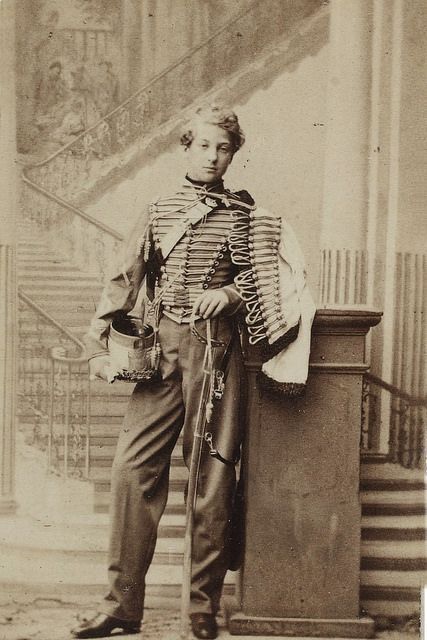
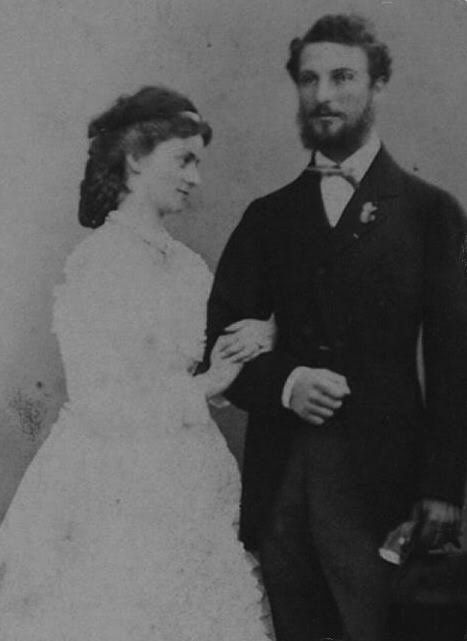
He married Sophie Charlotte Augustine, Duchess in Bavaria the sister of Empress Elisabeth(Sissi)of Austria.
The Duke and Duchess of Alençon had two children:
Louise d'Orléans (1869-1952) who married Prince Alphonse of Bavaria (1862-1933), infant of Spain. Emmanuel d'Orléans (1872-1931) "Duke of Vendôme" who, after an affair with Miss Louise de Maillé and the birth of a natural child, married Princess Henriette of Belgium (1870-1948), sister of King Albert I of Belgium.
The Duke d'Alençon's childhood is particularly austere. His father, Louis of Orleans, Duke of Nemours shows little tenderness to his children and roughs them, thinking thus to harden them. Despite everything, the Duke of Alençon remains very close to his father and he enjoys a great influence on him all his life. His mother, the Duchess Victoire, died in childbirth in 1857, when he was only 13 years old. Her grandmother, Queen Marie-Amélie cares with great tenderness for the education of her "little sonnet" and her brothers and sisters.
In 1861, after two years of public school in Edinburgh, "Alençon" studied the profession of arms at the military school of Segovia and, being forbidden to stay in France like all members of his family, he commits himself as a an officer in the Spanish army (of which his uncle, the Duke of Montpensier, is a part).
In 1866 Ferdinand and his cousin Louis of Orleans, Prince of Conde, embarked at Southampton on the Mongolia, a ship of the British shipowner P & O bound for Egypt. They land at Alexandria where Ferdinand let his cousin continue his journey, to visit the country. In the meantime, his grandmother died in England in 1866 at the age of 84.
Faithful to her sovereign, Isabel II of Spain, the prince participates in an expeditionary force tasked with suppressing an insurrection in the Philippines. His bravery earned him the rank of captain but he resigned when the queen was deposed in 1868.
When the Franco-Prussian war broke out in 1870, the Duke of Alençon informed the government of Napoleon III that he was eager to participate in the fighting, even as a second-class soldier. But the French army rejects the prince's request (like those of all his Orleans relatives), as ordered by the government of Napoleon III.
In 1868, the prince married Duchess Sophie-Charlotte de Wittelsbach, sister of the Empress of Austria and the former Queen of the Two Sicilies. The young couple Alençon lives happily, in Sicily then in Rome, at the King of the Two Sicilies, to cure the health of the Duchess, greatly weakened by a first childbirth. Falsely suspected of preparing with the two ex-sovereigns for the re-establishment of the Bourbons on the throne of the Two Sicilies, the "Duke and Duchess of Alençon", so as not to cause embarrassment to their parents, leave Italy and Italy. settled in Meran and Mentelberg, in the Austrian Tyrol (currently in Italy). The duchess gives birth to her second and last child, Emmanuel, while the duke is in Paris with his father preparing for the arrival of his family in his homeland.
Returning to France after the fall of the Second Empire, Ferdinand d'Orléans can finally become an officer in the army of this country he venerates without knowing him really since he left at the age of 4 years. The couple moved to Vincennes with his two children. Appreciated by his soldiers but abused by some of his superiors because of his royal birth, Ferdinand of Orleans is however again removed from military life by the 1886 law of exile, which excludes the Orleans and Bonaparte from France. and condemns the pretenders to the French throne to a new exile. Ferdinand however chooses not to accompany his cousin, the Count of Paris, in exile and remains live in the French capital by patriotism.
Like his wife, who became a Dominican Tertiary in 1876, the Duke of Alençon became a member of the Franciscan Third Order and devoted much of his time to good works. After the tragic death in 1886 of her first betrothed, Ludwig II of Bavaria, the Duchess of Alençon compulsively takes refuge in an adulterous love story. Ferdinand then had her cared for in a clinic near her family in Austria, under the benevolent care of her brother-in-law, Duke Charles Theodore in Bavaria, a soldier who became a doctor and then a well-known ophthalmologist. In 1891, his daughter Louise married a German cousin, Prince Alphonse of Bavaria. Five years later, the Duc de Vendôme married Princess Henriette of Belgium. If the "Bavaria" must wait many years before having their first child, very quickly the "Vendome" make Ferdinand grandfather. In 1897, the Duchess of Alençon perished in the fire of the Bazaar of Charity. The duke, broken and now in his fifties, tries to take the habit. This desire is not granted however, despite an appeal to Pope Pius X. Deceiving his boredom, the prince begins to travel across Europe, using his family relationships to defend the political positions of France while leading a life more and more evangelical. The "Duke of Alençon" died in 1910. His body and that of his wife are now gathered in the Royal Chapel of Orleans, Dreux.
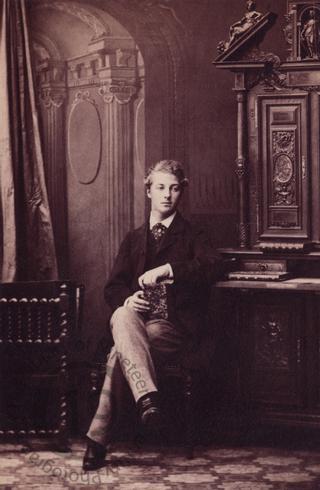
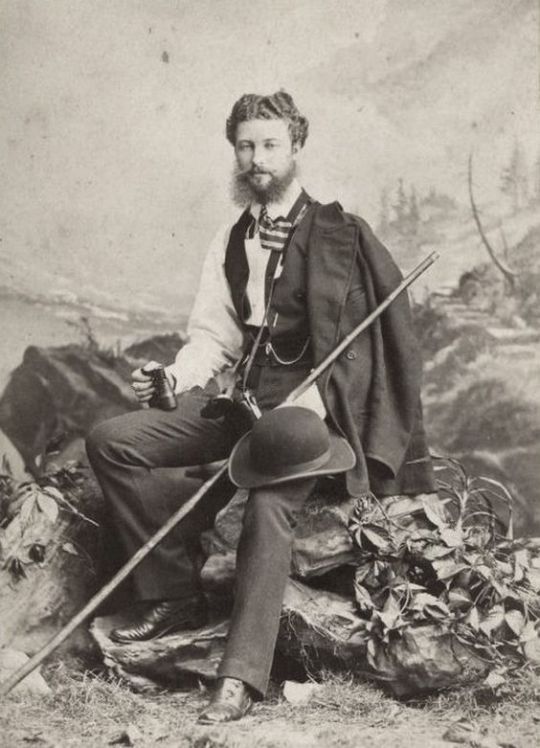

17 notes
·
View notes
Photo
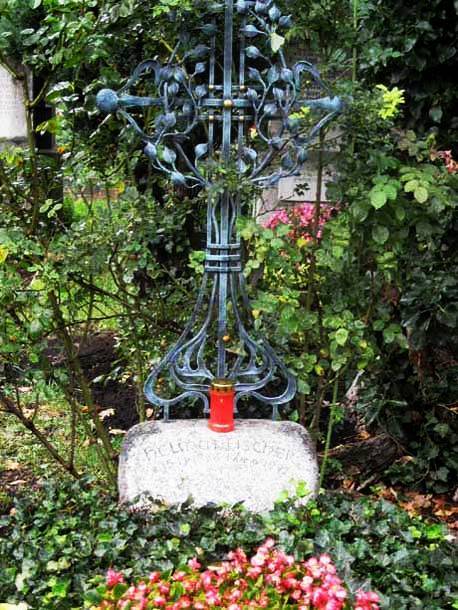
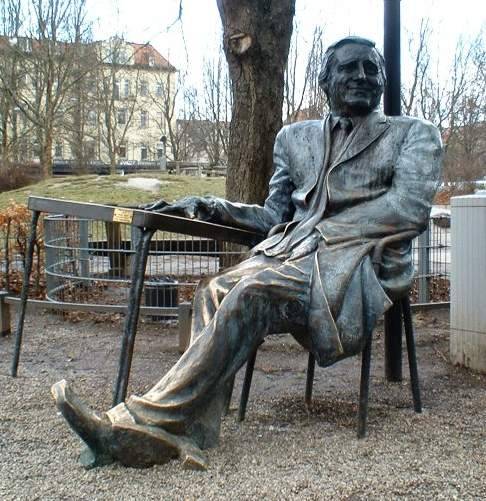
Helmut Fischer was the son of a businessman and a tailor and grew up in the Munich district of Neuhausen in Donnersbergerstraße 50a, where he also went to school. When the secondary school rejected him, he joined Otto Falckenberg's drama school, which he quit after a short time. In the subsequent period Fischer worked as a theater actor. In 1952 was his stage debut at the Würzburg city theatre as Albrecht III in Friedrich Hebbel's Agnes Bernauer. The reviews were devastating.
For almost 20 years Fischer remained largely unknown and had to deal with minor supporting roles. Among other things, he worked at the Munich "Oktoberfest" at the Zuban show as part of a zebra's behind. In 1953 he married the dancer Utta Martin, with whom he lived up to his death (44 years). In 1961 saw the actor's debut in Bavarian Television: as a hairdresser in Ludwig Thoma's comedy Die Lokalbahn. Fischer described himself as "terrible" and said in retrospect: "Richtig g'schämt hab' ich mich, wie überzogen ich damals g'spielt hab (I was terribly ashamed about my totally excessive acting)". As he was under-worked with acting alone, Fischer also worked as a film critic for the Munich Abendzeitung.
In 1972 he played in the Bavarian Television's first episode of the Tatort series, as assistant to then-time Inspector Veigl (played by Gustl Bayrhammer). When Veigl was "retired" in 1981, Fischer was "promoted" to Commissioner Ludwig Lenz and as such he solved a total of seven cases until 1987. In 1974 Helmut Fischer, in his favourite café Münchner Freiheit met director Helmut Dietl. The latter recognised his friend's true talent and in 1980 gave him a major role in the TV series Der ganz normale Wahnsinn in which Fischer for the first time got to play a manquéed playboy.
Memorial for "Monaco Franze" (Helmut Fischer) at Münchner Freiheit The final breakthrough came in 1983 with Helmut Fischer's series Monaco Franze – Der ewige Stenz. Again Helmut Dietl was the director, Patrick Süskind cooperated on the scripts to almost all episodes. In the series, which has now reached cult status among fans, Fischer alongside Ruth Maria Kubitschek, Christine Kaufmann, Karl Obermayr [de] and Erni Singerl [de] in inimitable way embodied an easygoing dandy, charmer and ladies' men, who always manages to master awkward situations with a sheepy smile. Famous sayings by the character role like "A bisserl was geht immer (Anything goes)" were adapted into daily language use. Matching this, Fischer also recorded a successful single titled "Spatzl (Schau wia i schau)) (Sweetheart (Look like I'm looking))".
From now on, the actor was busy with roles whose character were always based on Stenz though. Until the end of his life Fischer kept assuring that the figure of Monaco Franze had nothing to do with his real life. In the mid-1980s, Fischer played with Thomas Gottschalk and Michael Winslow in the two Zärtliche Chaoten films, from 1987 to 1992 he could be seen as "Josefbärli" along Veronika Fitz and Ilse Neubauer in the series Die Hausmeisterin (The House Keeper). Fischer enjoyed his last success in the series Ein Schloß am Wörthersee (A castle on the Wörthersee), where he played the absentminded estate manager Leo Laxeneder, and as the fictitious mayor of Hohenwaldau, Peter Elfinger in Peter and Paul alongside Hans Clarin.
In 1993 Helmut Fischer was diagnosed with cancer. He kept this diagnosis largely secret, only his wife Utta knew about it. In 1996, the actor underwent treatment by the well-known and controversial cancer specialist Julius Hackethal. In November he celebrated his 70th anniversary with a great number of friends and colleagues. At the occasion the told the press: "Das Leben macht sich ja mehr und mehr aus dem Staub (Life is more and more buzzing off)". Eight months later Fischer, to the surprise of the common public, died in Chiemgau. More than 1,000 people participated in the funeral service at the mortuary of Munich's northern cemetery and the subsequent funeral at the Bogenhausen cemetery (gravesite no. 2-4-2) on 19 June 1997. In his funeral speech Munich's Lord Mayor Christian Ude, a friend and neighbour of Fischer, said: "... Populär war er in ganz Deutschland - in München wurde er geliebt. (He was popular throughout Germany - in Munich, he was loved.)"
Filmography :
1958 – Cherchez la femme (Curse the Women); with Helen Vita
1959 – Hunting Party; with Angelika Meissner and Wolf Albach-Retty
1960 – Oh! This Bavaria!; with Liesl Karlstadt and Ludwig Schmid-Wildy
1960 – Die vor die Hunde gehen (Those Who go to the Dogs)
1962 – Florence und der Zahnarzt (Florence and the Dentist)
1970 – Der Röhm-Putsch (Night of the Long Knives); with Hans Korte and Gustl Bayrhammer
1978 – Sachrang (Order of the Case); with Gustl Bayrhammer
1978 – The Unicorn
1978 - Derrick - Season 05, Episode 04: "Ein Hinterhalt"
1979 – Blauer Himmel, den ich nur ahne (Blue Heavens which I can but sense); with Jörg Hube and Hans Stadtmüller
1979 – Der Durchdreher; Director: Helmut Dietl
1980 – Die Undankbare (The Ungrateful)
1984 – Mama Mia – Nur keine Panik [de] (Mamma mia - don't panic); with Uschi Glas and Thomas Gottschalk
1987 – Hexenschuß (Lumbago); with Birte Berg and Beppo Brem
1987 – Zärtliche Chaoten (Tender Chaotics); with Thomas Gottschalk and Michael Winslow
1988 – Starke Zeiten (Hard Times); with Karl Dall, Hans-Joachim Kulenkampff and David Hasselhoff
1988 – Zärtliche Chaoten 2; with Thomas Gottschalk und Michael Winslow
1989 – Jede Menge Schmidt (Lots of Schmidt); with Anja Schüte
1992 – Der Unschuldsengel (Innoncent as an Angel); with Hans Clarin and Iris Berben
1993 – Probefahrt ins Paradies (Test Run to Paradise)
1995 – Drei in fremden Kissen (Three in Foreign Sheets); with Hans Brenner and Fritz Wepper
1996 – Drei in fremden Betten (Three in foreign Beds); with Fritz Wepper and Heidelinde Weis
1997 – Fröhlich geschieden (Happily divorced); with Rainhard Fendrich
TV series :
Funkstreife Isar 12 (Patrol Car Isar 12); with Wilmut Borell and Karl Tischlinger
Graf Yoster gibt sich die Ehre (Count Yoster); with Lukas Ammann and Wolfgang Völz
1972–1981 – Tatort; as Kommissar Veigl's (Gustl Bayrhammer) assistant Ludwig Lenz, with Willy Harlander
1981–1987 – Tatort; as Hauptkommissar Ludwig Lenz
Tatort series as visiting commissioner in:
1968 – Die seltsamen Methoden des Franz Josef Wanninger (The Strange Methods of F. J. Wanninger) - Die Beschützer(The Protectors); TV police series
1972 – Gestern gelesen (Read Yesterday)
1978 – Derrick - Ein Hinterhalt (An Ambush); TV police series with Horst Tappert and Fritz Wepper
1979 and 1986/1987 – Der Millionenbauer (The Million Mark Farmer); with Walter Sedlmayr and Veronika Fitz
1979 – Fast wia im richtigen Leben (Almost like Real Life); with Gerhard Polt
1979 – Der ganz normale Wahnsinn (The Ordinary Madness)
1982 – Meister Eder und sein Pumuckl - Die abergläubische Putzfrau (The Superstitious Cleaner); Children's series
1983 – Krimistunde (Thriller Time)
1983 – Monaco Franze – Der ewige Stenz; with Ruth Maria Kubitschek
1983 – Unsere schönsten Jahre (Our best Years); with Uschi Glas and Elmar Wepper
1986 – Das Traumschiff (The Dreamliner); guest role
1986 – Rette mich, wer kann (Save Me who Can!); with Gundi Ellert
1987–1992 – Die Hausmeisterin (The House Keeper); with Veronika Fitz
1992 – Lilli Lottofee [de] (roughly: Lilli the Lottery Game Fairy); with Senta Berger
1992–1993 – Ein Schloß am Wörthersee (A Castle on Wörthersee); with Uschi Glas
1993–1994 – Peter und Paul (Peter and Paul); series with Hans Clarin
1996 – Wir Königskinder; with Fritz Wepper
1972 Münchner Kindl
1973 Weißblaue Turnschuhe (White and blue Sneakers)
1973 Tote brauchen keine Wohnung (Dead Persons need no Flat)
1974 3:0 für Veigl (3-0 for Veigl)
1975 Als gestohlen gemeldet (Reported stolen)
1975 Das zweite Geständnis (The second Confession)
1976 Wohnheim Westendstraße (Westendstraße Boarding House)
1977 Das Mädchen am Klavier (The Girl at the Piano)
1977 Schüsse in der Schonzeit (Shots during Closed Season)
1978 Schlußverkauf (Sale-out)
1978 Schwarze Einser (Black Ones)
1979 Ende der Vorstellung (End of the Show)
1979 Maria im Elend (Miserable Maria)
1980 Spiel mit Karten (A Card Game)
1981 Usambaraveilchen (Saintpaulias)
1981 Im Fadenkreuz (In the Crosshairs)
1982 Tod auf dem Rastplatz (Death on the resting place)
1983 Roulette mit sechs Kugeln (Roulette with six Bullets)
1984 Heißer Schnee (Hot Snow)
1985 Schicki Micki (Fancy)
1987 Die Macht des Schicksals (The Power of Fate)
1987 Gegenspieler (Opponent)
1976 Transit ins Jenseits (Transit to the Afterlife)
1977 Wer andern eine Grube gräbt (Harm set, Harm get)
1979 Der King (The King)
1987 Wunschlos tot (Perfectly Dead)
Stage plays :
1952 – Agnes Bernauer - at the Würzburg city theatre
1953 – Diener zweier Herren (Servant of Two Masters) - am Stadttheater Würzburg
1964 – Die großen Sebastians (The Great Sebastians) - at the Kleine Komödie in Munich
1966 – Italienische Nacht (Italian Night) - at Residenz Theatre
1969-1970 – Jagdszenen aus Niederbayern (Hunting Scenes from Lower Bavaria) - Münchner Kammerspiele
1975 – Fast wie ein Poet (Almost like A Poet) - at Residenz Theatre - Director: Rudolf Noelte
1984-1985 – Waldfrieden (Peace in the Woods) - Münchner Volkstheater
1984-1985 – Die Brautschau (Looking for a Wife) - am Münchner Volkstheater mit Hans Brenner
On Fischer's favourite spot in the garden of café Münchner Freiheit in Schwabing, a bronze monument by Nicolai Tregor Jr. was revealed which depicts Fischer in his famous role as Monaco Franze.
#helmut fischer#deutschland#europe#monaco#bavaria#tombstone#munchen#münchen#munich#graveyard#grave#tomb#death#monument#filmography
8 notes
·
View notes
Text
January 07

[1528] Jeanne d'Albret, Queen of Navarre (1555-72), mother of French King Henry IV.
[1768] Joseph Bonaparte, French King of Naples and Spain, brother of Napoleon, born in Corte, Corsica.
[1796] Charlotte Augusta of Wales, British Princess and only legitimate grandchild of King George III, born in London.
[1845] Ludwig III, last King of Bavaria (1913-18), born in Munich, Bavaria.
[1926] Joe Marston, Australian football defender, born in Leichhardt, New South Wales, Australia.
[1929] Mario Bergamaschi, Italian football midfielder, born in Crema, Italy.
[1939] Prince Michael of Greece and Denmark, born in Rome, Kingdom of Italy.
[1964] Nicolas Cage, American actor, born in Long Beach, California.
[1970] João Ricardo, Angolan football goalkeeper, born in Luanda, Angola.
[1971] Jeremy Renner, American actor, born in Modesto, California.
[1977] Dustin Diamond, American actor and stand-up comedian, born in San Jose, California.
[1982] Lauren Cohan, British-American actress, born in Cherry Hill, New Jersey.
[1983] Brett Dalton, American actor, born in San Jose, California.
[1986] Grant Leadbitter, English football midfielder, born in Chester-le-Street, United Kingdom.
[1987] Davide Astori, Italian football central defender, born in San Giovanni Bianco, Italy.
[1989] Emiliano Insúa, Argentine football left-back, born in Buenos Aires, Argentina.
[1991] Eden Hazard, Belgian football winger or attacking midfielder, born in La Louvière, Belgium.
[2012] Blue Ivy Carter, American daughter of Beyoncé and Jay-Z, born in New York City, New York.

[312] Lucian of Antioch, theologist and martyr, dies from torture and starvation at 72.
[1285] Charles I of Anjou, King of Naples and Sicily (1266-85), brother of King Louis IX of France, dies at 58.
[1325] Denis of Portugal, King of Portugal (1279-1325), dies at 63.
[1355] Inês de Castro, Galician noblewoman, lover and posthumously-recognized wife of King Peter I of Portugal, is murdered in the orders of King Afonso IV at 29 or 30.
[1536] Catherine of Aragon, 1st wife of King Henry VIII, mother of Queen Mary 1, dies at 50.
[1695] Mary II, Queen of England, Scotland and Ireland, wife of King William III, dies of smallpox at 32 (OS=Dec. 28, 1694).
[1743] Anne Sophie von Reventlow, Queen of Denmark and Norway (1721-30), dies at 49.
[1830] Infanta Carlota Joaquina, daughter of King Charles IV of Spain and wife of King John VI of Portugal, dies at 53.
[1890] Augusta of Saxe-Weimar-Eisenach, wife of German Emperor William I, dies at 78.
[1922] Jonah Kūhiō Kalaniana'ole, Prince of the Kingdom of Hawaii, dies at 50.
[1943] Nikola Tesla, Serbian-American physicist,electrical engineer and inventor who developed alternating current and the Tesla Coil, dies at 86.
[1989] Emperor Shōwa (Hirohito), 124th Emperor of Japan (1926-89), dies at 87 after a 62-year reign.
[2020] Khamis Al-Owairan, Saudi Arabian football midfielder, dies from cancer at 46.
#on this day in history#on this day#otdih#otd#football history#football#january#january 07#birthdays#rest in peace#nicolas cage#jeremy renner#dustin diamond#lauren cohan#brett dalton#eden hazard#joseph bonaparte#blue ivy carter#beyoncé#jay z#peter i of portugal#catherine of aragon#mary ii#nikola tesla#emperor hirohito
0 notes
Text
Last sentence meme
I was tagged by @ladymdc a lifetime ago, thankssss <3
The last thing I was working on is an original story in Italian not DA related, I’ll quickly translate the last sentence I wrote x)
This whole chapter is set in 1933 in the Munich Residence:
IT: "Facciamo tutti parte della famiglia Wittelsbach", affermò Hugh indicando a Hilde una coppia poco distante. “Lui è Franz von Bayern, figlio dell’ultimo re di Baviera Ludwig III e generale maggiore nell’esercito bavarese, con la moglie Isabella”
EN: “We’re all members of the Wittelsbach family”, Hugh affirmed, showing Hilde a couple not too far from them. “He is Franz of Bavaria, son of the last king of Bavaria Ludwig III and a Major General in the Bavarian Army, with his wife Isabella”.
I tag @briarfox13 @tk-duveraun @tessa1972 and anyone who wants to do this :)
#Hugh Aldridge#Hildegard Schmidt#I think it's the first time they appear here#their face claims are basically#michael fassbender#and#claire foy
7 notes
·
View notes
Photo

Mathilde Caroline of Bavaria, Grand Duchess of Hesse and by Rhine (30 August 1813 - 25 May 1862)
#mathilde caroline of bavaria#mathilde karoline friederike wilhelmine charlotte#grand duchess of hesse and by rhine#daughter of ludwig i of bavaria#wife of louis iii grand duke of hesse#history#women in history#19th century#art
12 notes
·
View notes
Text

Wilhelm Karl, Duke of Urach and his wife Duchess Wiltrud née Bavaria, mids 1920s.
Born as Wilhelm Karl Florestan Gero Crescentius, Count of Württemberg, he was the eldest son of Wilhelm (I) Duke of Urach, Count of Württemberg, and his second wife, Princess Florestine of Monaco, daughter of Prince Florestan of Monaco.
Wilhelm was married twice. In 1892, he married Duchess Amalie in Bavaria(1865–1912), daughter of Karl Theodor, Duke in Bavaria by his first wife Princess Sophie of Saxony, Amalie was a niece of Empress Elisabeth of Austria. Nine children were born of this marriage
Sadly Amalie passed away in 1912, following the birth of her ninth child, Princess Mechthilde.
In 1924, Wilhelm married Princess Wiltrud of Bavaria (1884–1975), daughter of King Ludwig III of Bavaria. This marriage was childless
#duke wilhelm karl of urach#urach#german royalty#german royal#princess wiltrud of bavaria#duchess wiltrud of urach#1920s#mids 1920s
19 notes
·
View notes